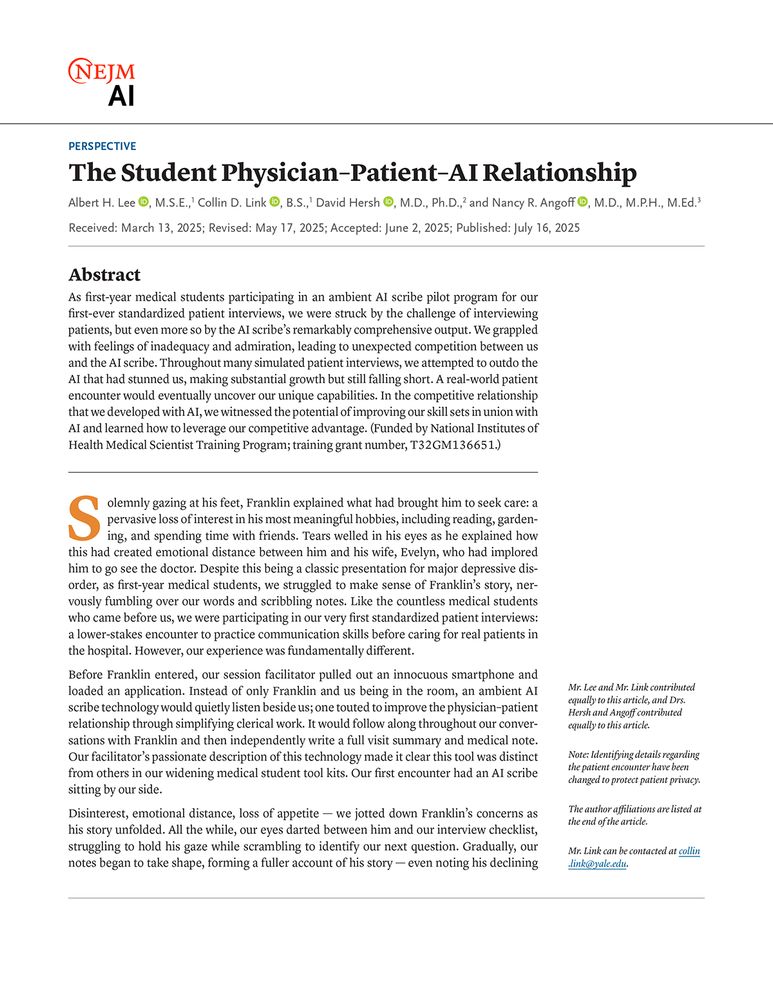
Page 1 of the Perspective "The Student Physician–Patient–AI Relationship"
Perspective by A.H. Lee et al.: The Student Physician–Patient–AI Relationship nejm.ai/44VgDU8
#AI #MedSky #MedEd
@ai.nejm.org
NEJM AI, a new monthly journal from the publisher of @nejm.org, explores the cutting-edge applications of artificial intelligence and machine learning in clinical medicine. Online at ai.nejm.org.

Page 1 of the Perspective "The Student Physician–Patient–AI Relationship"
Perspective by A.H. Lee et al.: The Student Physician–Patient–AI Relationship nejm.ai/44VgDU8
#AI #MedSky #MedEd
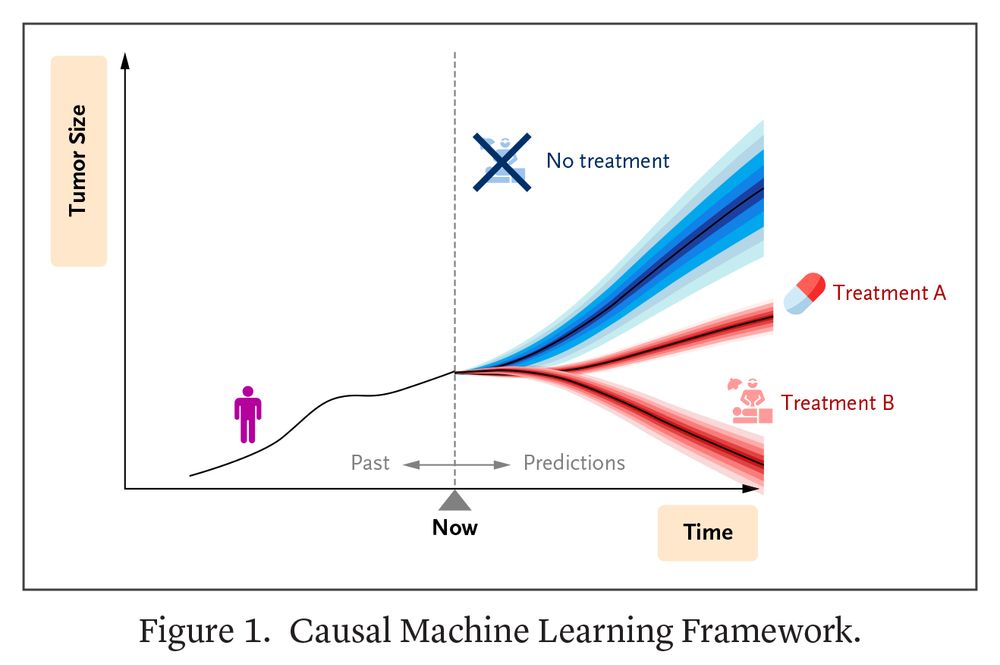
Figure 1. Causal Machine Learning Framework.
Perspective by J. Weberpals et al.: Opportunities for Causal Machine Learning in Precision Oncology nejm.ai/3GOpfnl
#AI #MedSky #ML
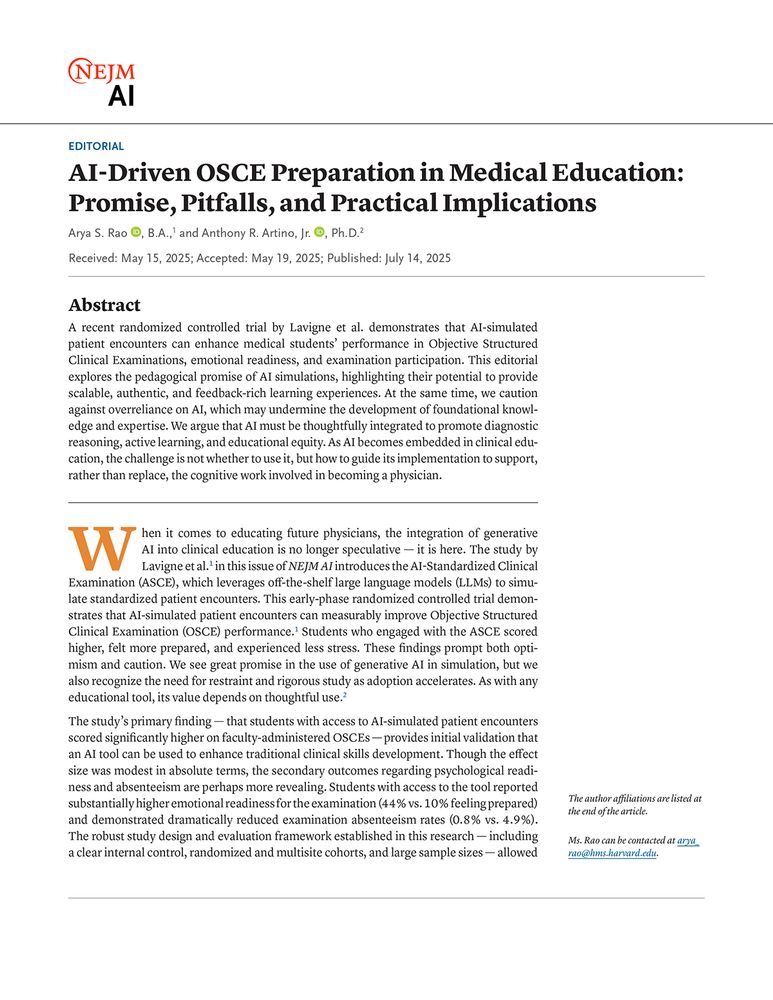
Page 1 of the editorial "AI-Driven OSCE Preparation in Medical Education: Promise, Pitfalls, and Practical Implications"
Editorial by Arya S. Rao, BA, and Anthony R. Artino, Jr., PhD: AI-Driven OSCE Preparation in Medical Education: Promise, Pitfalls, and Practical Implications nejm.ai/3GyaXat
#AI #MedSky #MLSky
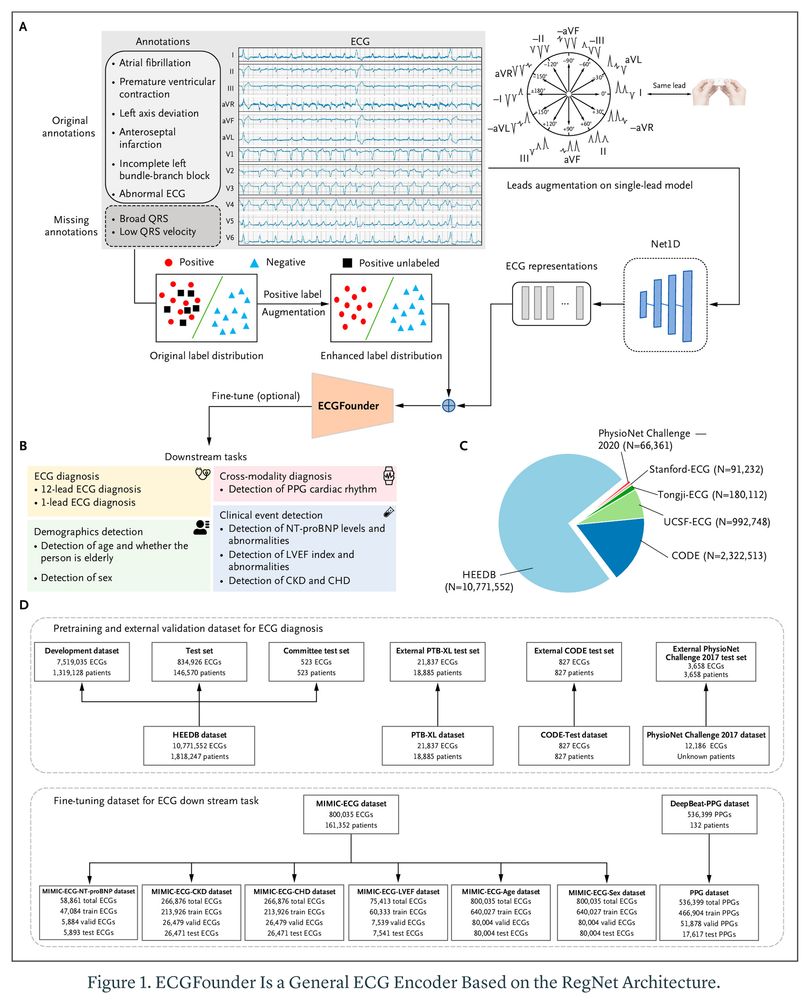
Figure 1. ECGFounder Is a General ECG Encoder Based on the RegNet Architecture.
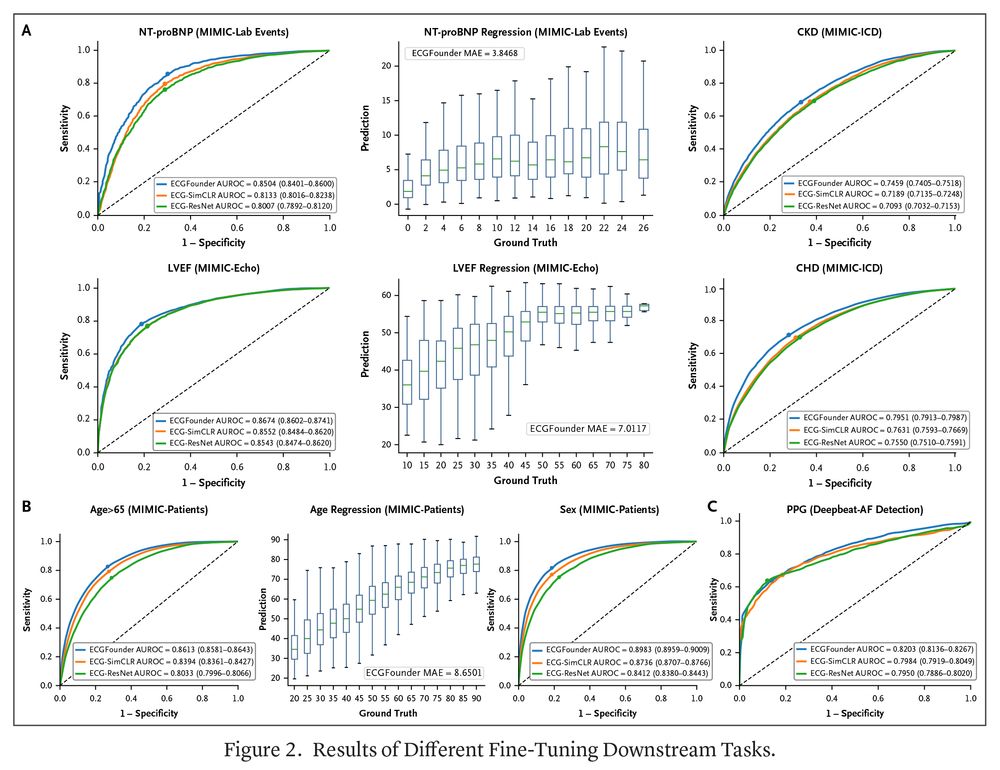
Figure 2. Results of Different Fine-Tuning Downstream Tasks.
Original Article by J. Li et al.: An Electrocardiogram Foundation Model Built on over 10 Million Recordings nejm.ai/3TJHs8q
#AI #MedSky #CardioSky
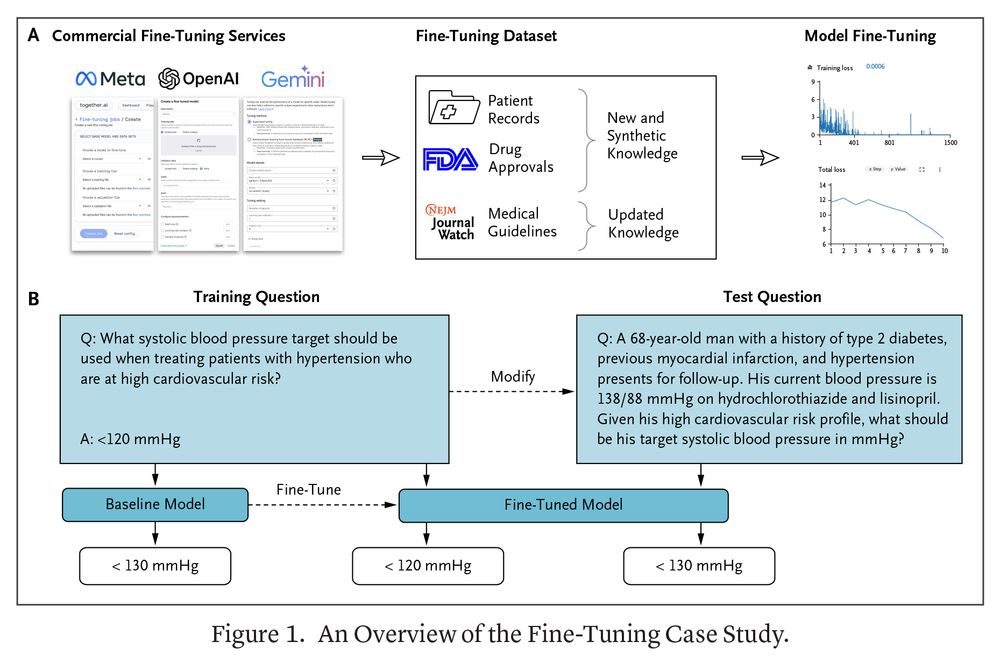
Figure 1. An Overview of the Fine-Tuning Case Study.
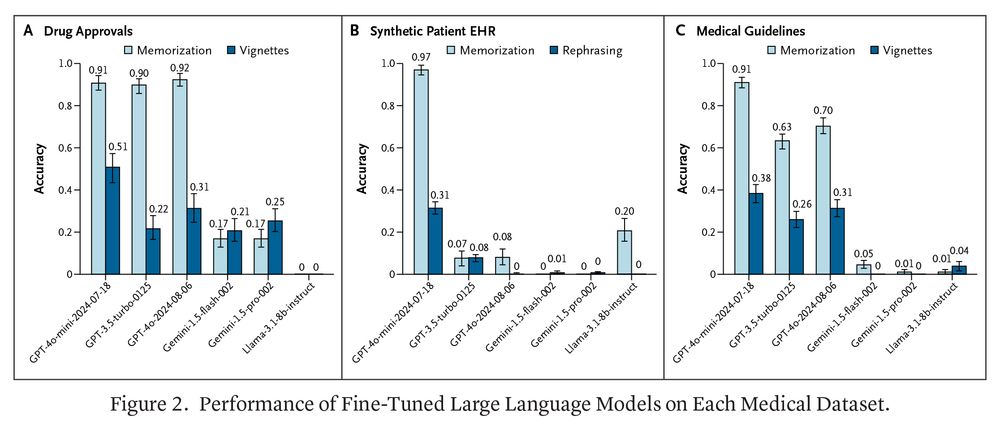
Figure 2. Performance of Fine-Tuned Large Language Models on Each Medical Dataset.
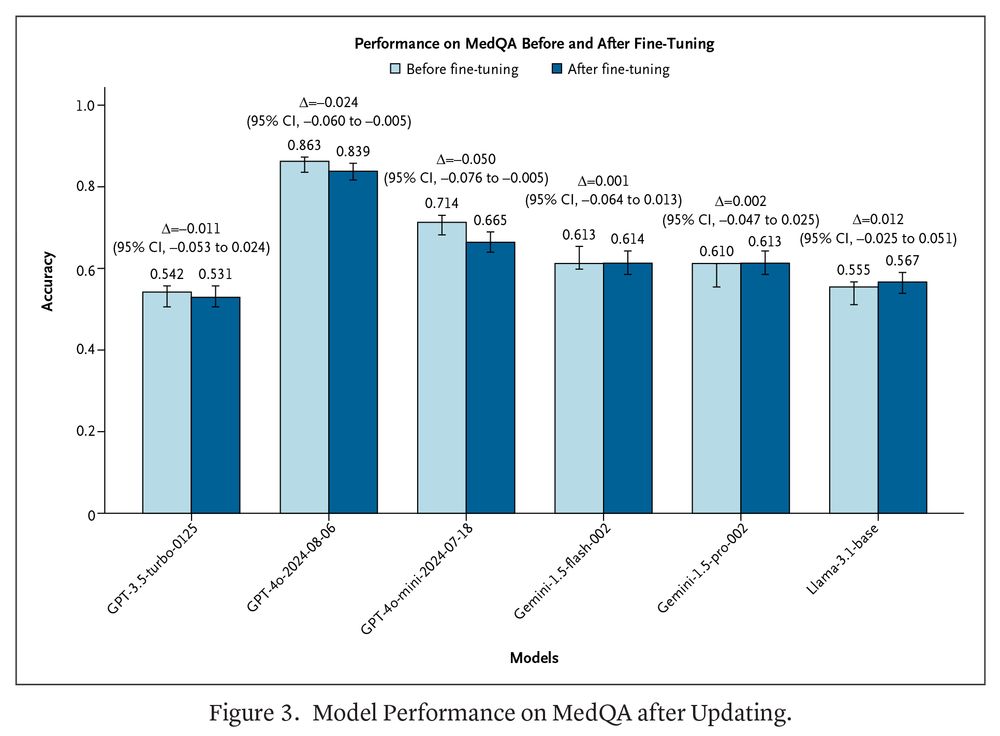
Figure 3. Model Performance on MedQA after Updating.
Case Study by Eric Wu, PhD, Kevin Wu, PhD, and James Zou, PhD: Limitations of Learning New and Updated Medical Knowledge with Commercial Fine-Tuning Large Language Models nejm.ai/4nTx1Np
@jameszou.bsky.social #AI #MedSky
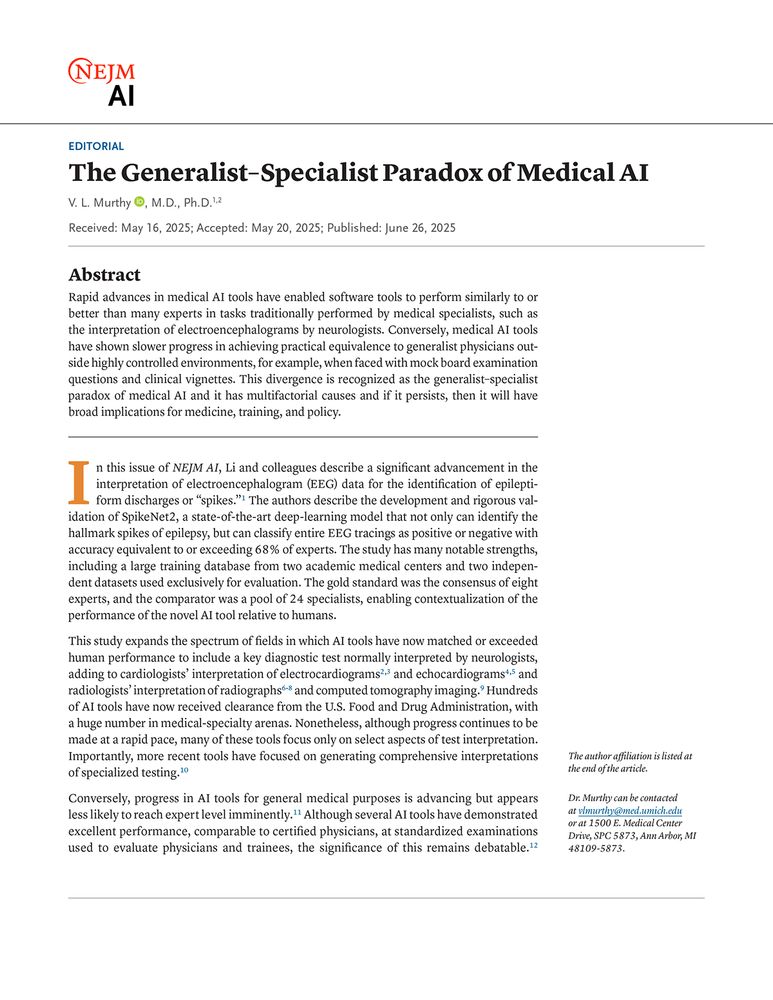
Page 1 of the editorial "The Generalist–Specialist Paradox of Medical"
Editorial by V. L. Murthy, MD, PhD: The Generalist–Specialist Paradox of Medical AI nejm.ai/4nm6054
#AI #MedSky #MLSky
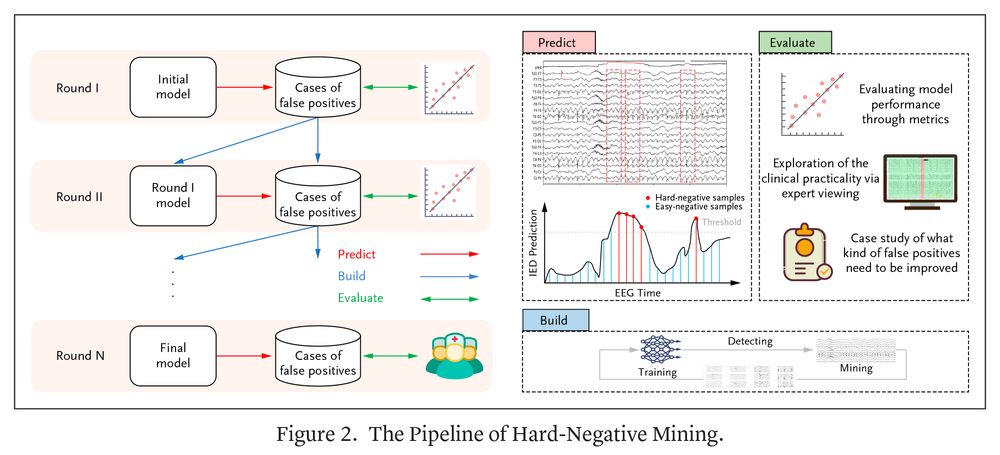
Figure 2. The Pipeline of Hard-Negative Mining.
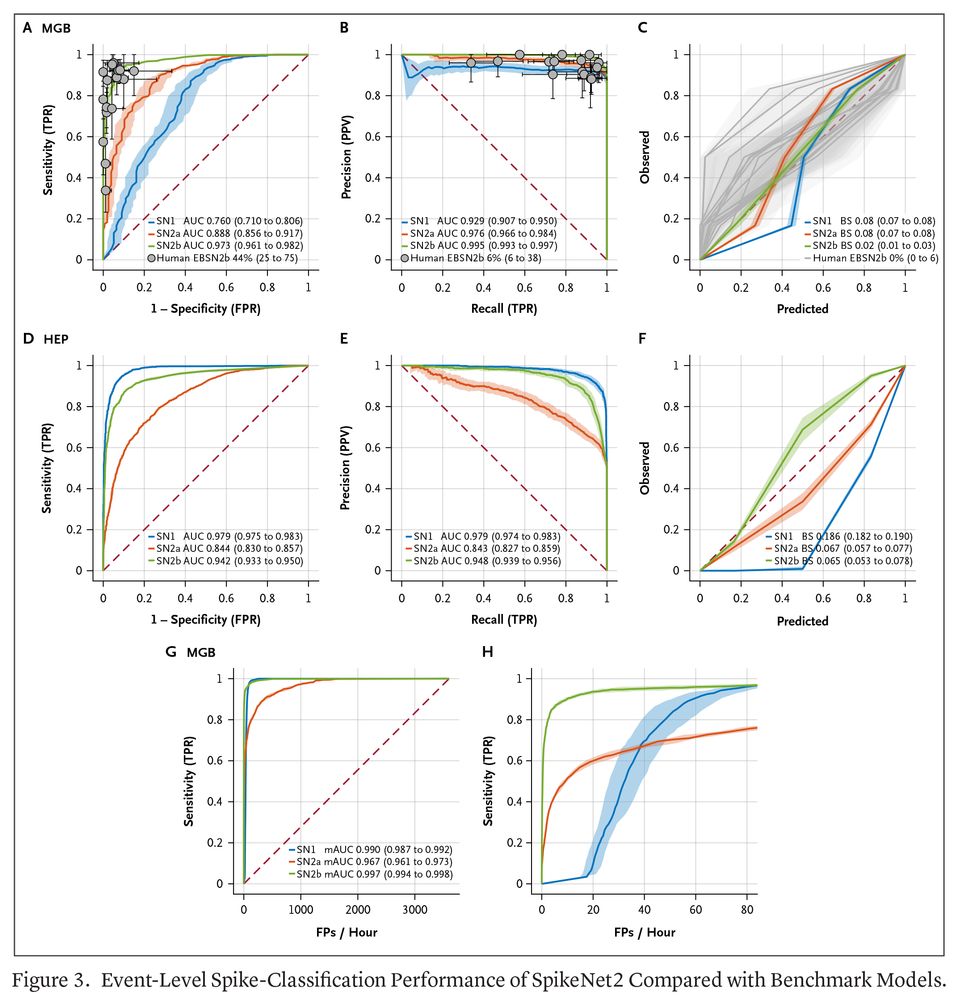
Figure 3. Event-Level Spike-Classification Performance of SpikeNet2 Compared with Benchmark Models.
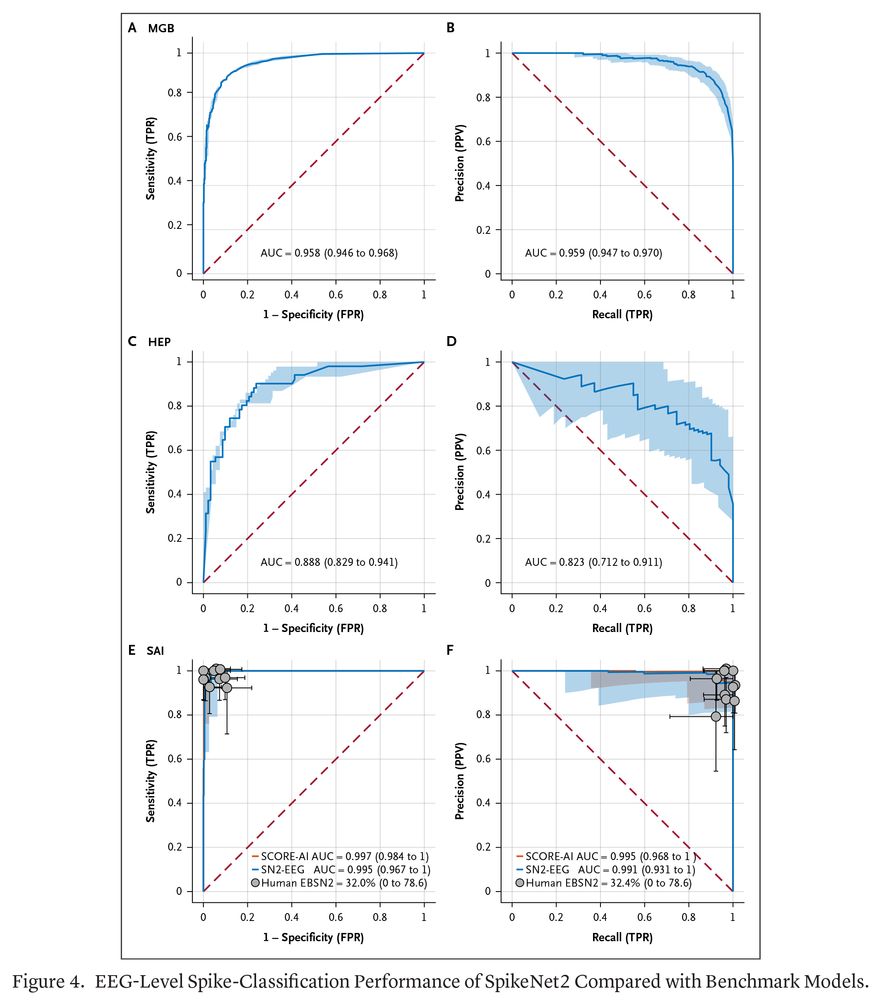
Figure 4. EEG-Level Spike-Classification Performance of SpikeNet2 Compared with Benchmark Models.
Original Article by J. Li et al.: Expert-Level Detection of Epilepsy Markers in EEG on Short and Long Timescales nejm.ai/4lq1Qr4
#AI #MedSky #NeuroSky
📖 Further reading:
Original Article by S. Kazemzadeh et al.: Prospective Multi-Site Validation of AI to Detect Tuberculosis and Chest X-Ray Abnormalities nejm.ai/3BiM6Vf
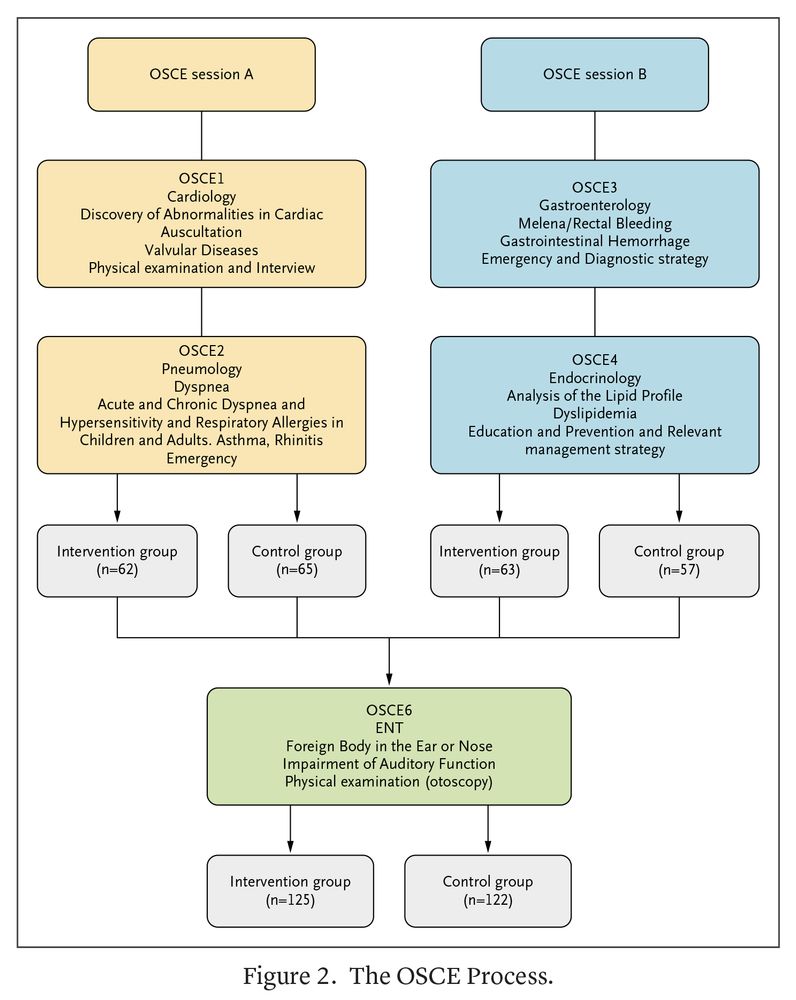
Figure 2. The OSCE Process.
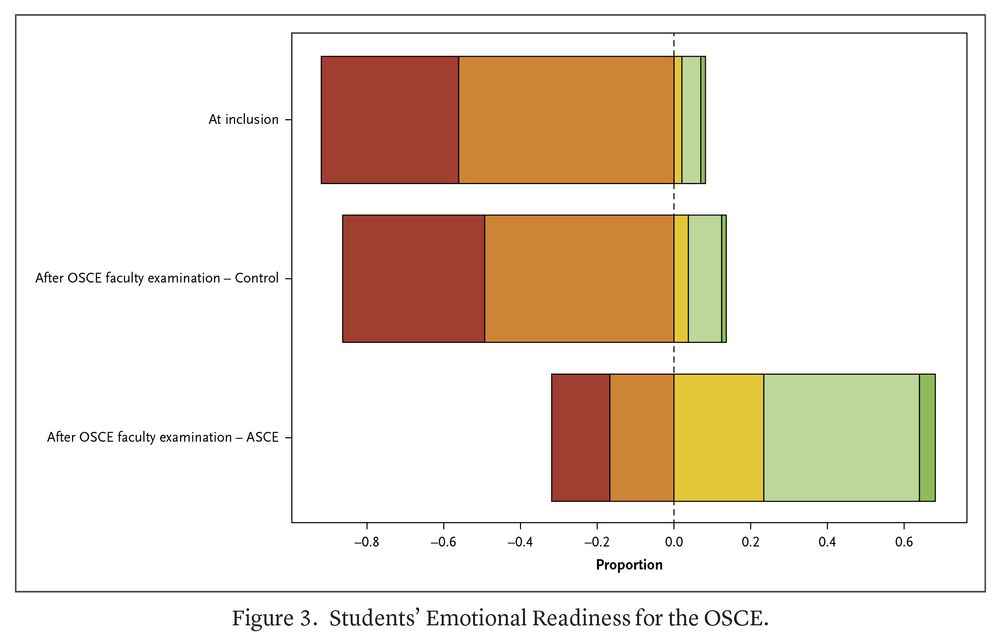
Figure 3. Students’ Emotional Readiness for the OSCE.
Original Article by E. Lavigne et al.: AI-Standardized Clinical Examination Training on OSCE Performance nejm.ai/3TEiuHO
#AI #MedSky #MLSky
On the latest episode of the NEJM AI Grand Rounds podcast, Dr. Andy Beam shares how a missed diagnosis broke his reverent view of doctors — and sparked a career in medical #AI. Full episode: nejm.ai/ep32
@andrewlbeam.bsky.social #MedSky
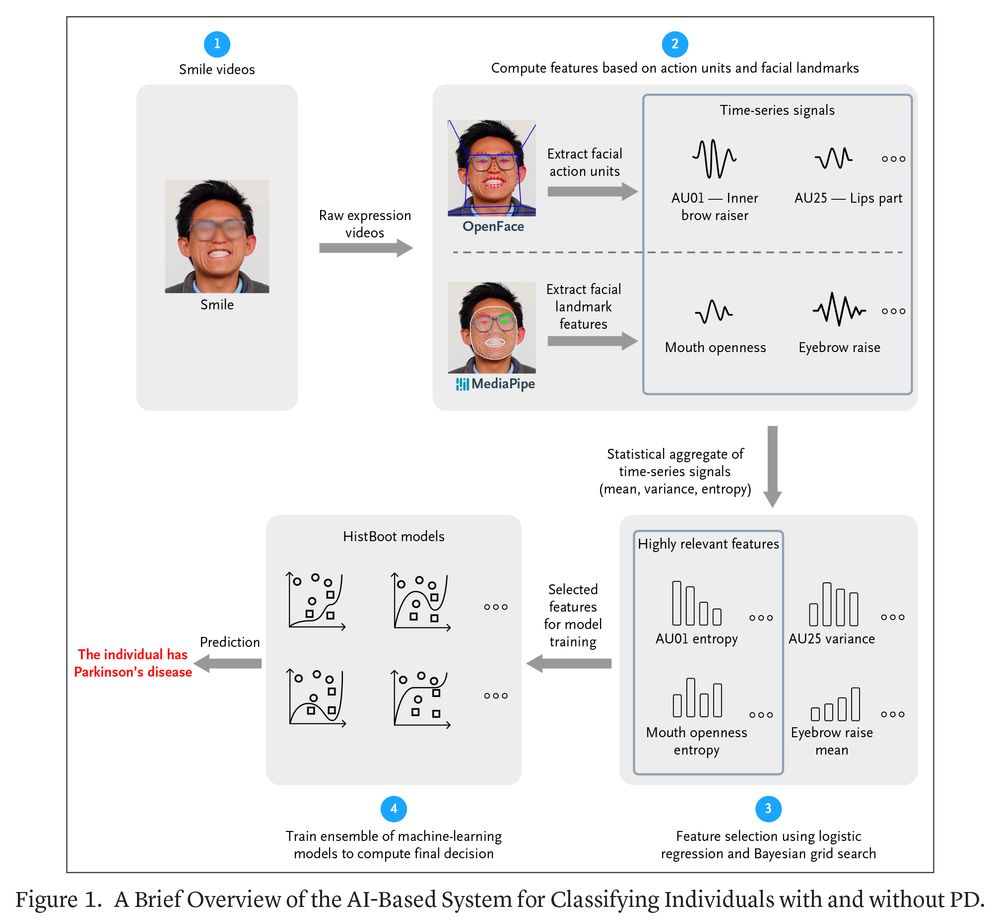
Figure 1. A Brief Overview of the AI-Based System for Classifying Individuals with and without PD.
Original Article by T. Adnan et al.: AI-Enabled Parkinson’s Disease Screening Using Smile Videos nejm.ai/4nk6PeD
#AI #MedSky #NeuroSky
Original Article: AI-Standardized Clinical Examination Training on OSCE Performance nejm.ai/3TEiuHO
Case Study: Limitations of Learning New and Updated Medical Knowledge with Commercial Fine-Tuning Large Language Models nejm.ai/4nTx1Np
Perspective: Opportunities for Causal Machine Learning in Precision Oncology nejm.ai/3GOpfnl
Original Article: AI-Assisted Spirometry Interpretation in Primary Care: A Randomized Controlled Trial nejm.ai/46WAhS6
Perspective: A Letter about “Prospective Multisite Validation of AI to Detect Tuberculosis and Chest X-Ray Abnormalities” nejm.ai/4nRBpwv
Perspective: The Student Physician–Patient–AI Relationship nejm.ai/44VgDU8
Editorial: AI for Spirometry Interpretation in Primary Care nejm.ai/4o2VoZa
Perspective: AI Agents, Automaticity, and Value Alignment in Health Care nejm.ai/4lDyK81
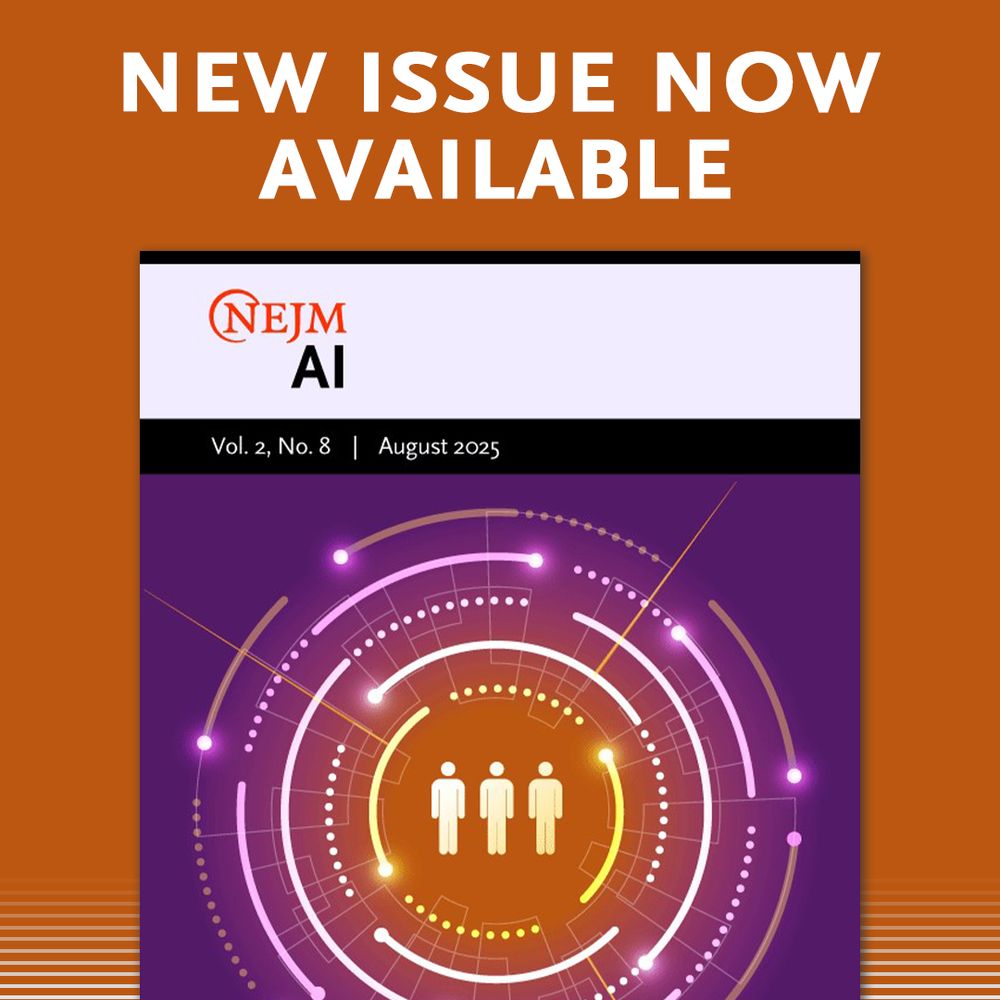
The cover of the August 2025 issue of NEJM AI with "NEW ISSUE NOW AVAILABLE" above it
Volume 2, No. 8 of NEJM AI is now available! Here are the latest articles:
Editorial: AI-Driven OSCE Preparation in Medical Education: Promise, Pitfalls, and Practical Implications nejm.ai/3GyaXat
#MedSky #AI #MLSky
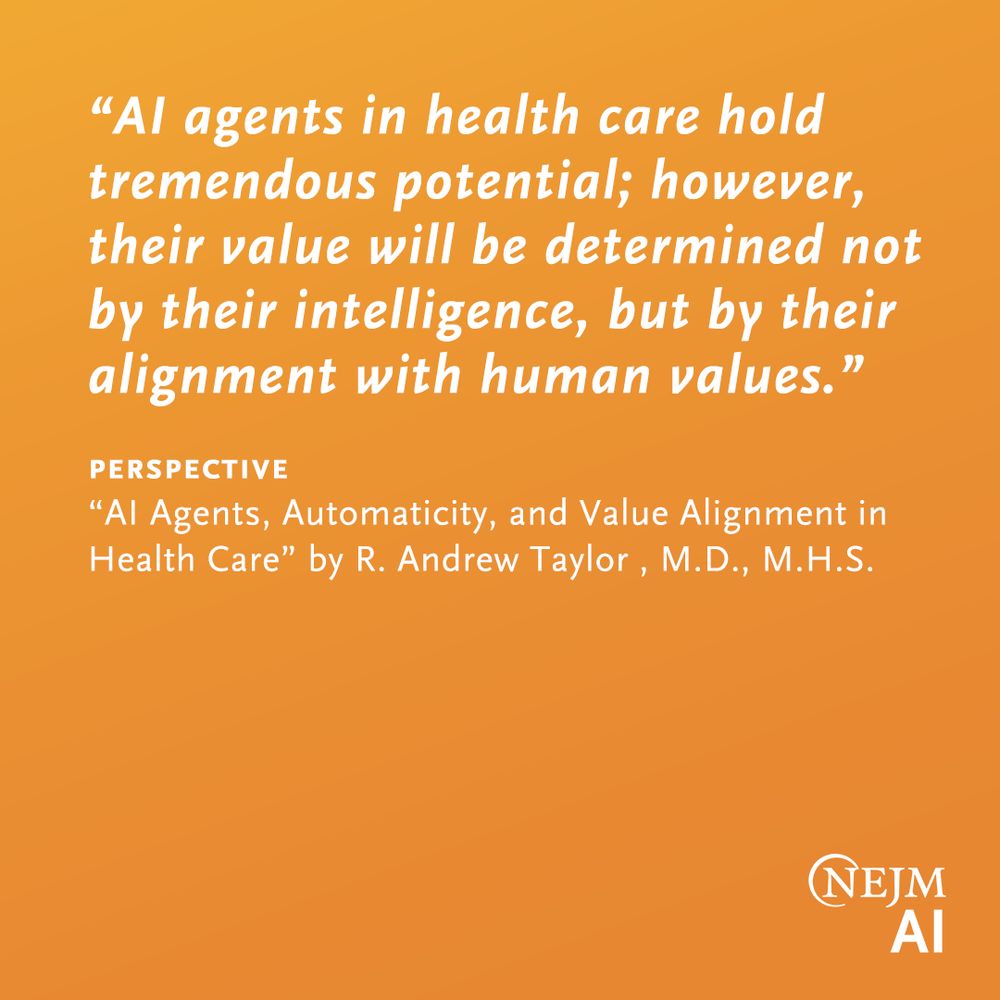
“AI agents in health care hold tremendous potential; however, their value will be determined not by their intelligence, but by their alignment with human values.” Perspective “AI Agents, Automaticity, and Value Alignment in Health Care” by R. Andrew Taylor , M.D., M.H.S.
In a new Perspective, R. Andrew Taylor, MD, MHS, frames AI agents as a transformative advancement in health care AI, offering unprecedented capabilities but raising complex ethical challenges. Learn more: nejm.ai/4lDyK81
#AI #MedSky #MLSky

Figure 1. ECGFounder Is a General ECG Encoder Based on the RegNet Architecture.
ECGFounder, a general-purpose foundation model for cardiovascular disease detection, demonstrates strong generalization and outperforms baseline models on diverse tasks, enabling scalable, cloud-integrated cardiac monitoring. Learn more: nejm.ai/3TJHs8q
#AI #MedSky #CardioSky

Figure 1. An Overview of the Fine-Tuning Case Study.
Six frontier large language models evaluated on incorporating newly updated medical knowledge through commercial fine-tuning application programming interfaces struggled to generalize updated information, despite modest gains. Learn more: nejm.ai/4nTx1Np
@jameszou.bsky.social
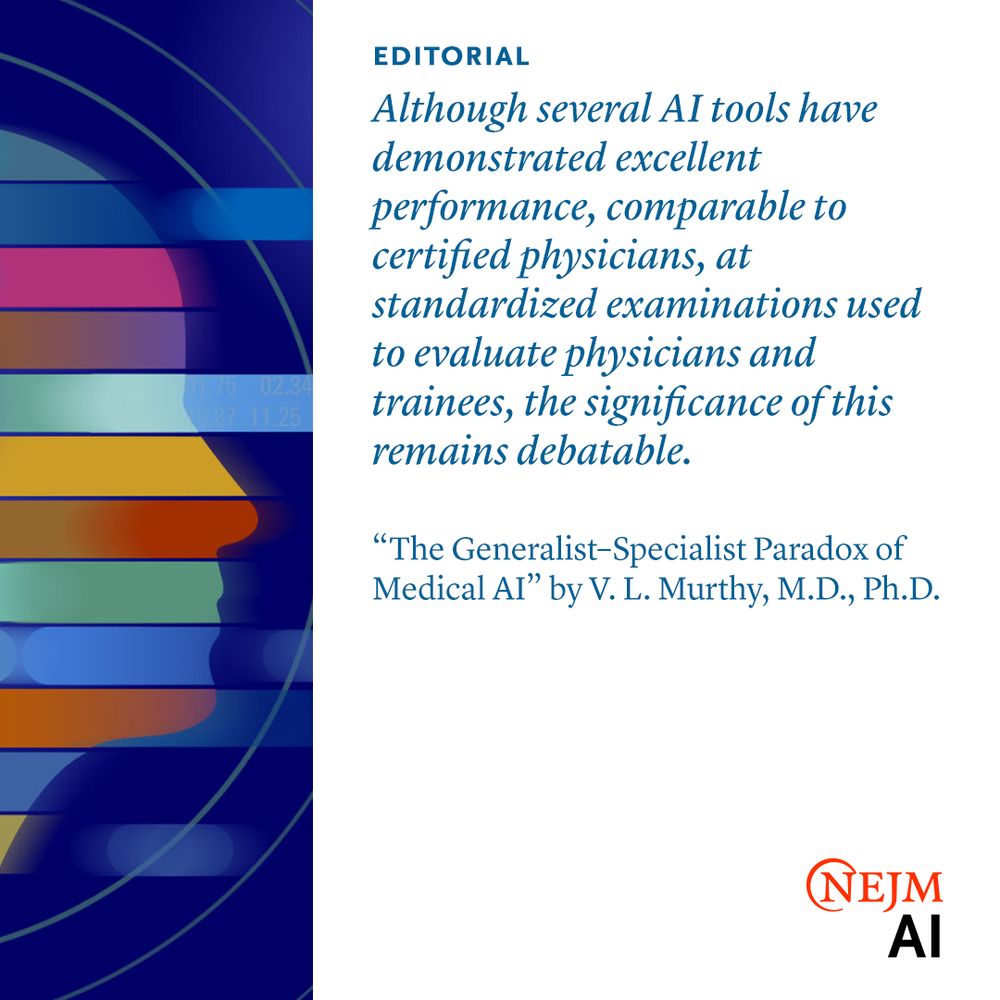
Editorial Although several AI tools have demonstrated excellent performance, comparable to certified physicians, at standardized examinations used to evaluate physicians and trainees, the significance of this remains debatable. “The Generalist–Specialist Paradox of Medical AI” by V. L. Murthy, M.D., Ph.D.
In an editorial, V. L. Murthy, MD, PhD, writes that we may be entering an era of specialist–generalist medical #AI paradox, wherein AI more rapidly advances in performing tasks that humans require specialization to perform than in general medical tasks. nejm.ai/4nm6054
#MedSky #MLSky
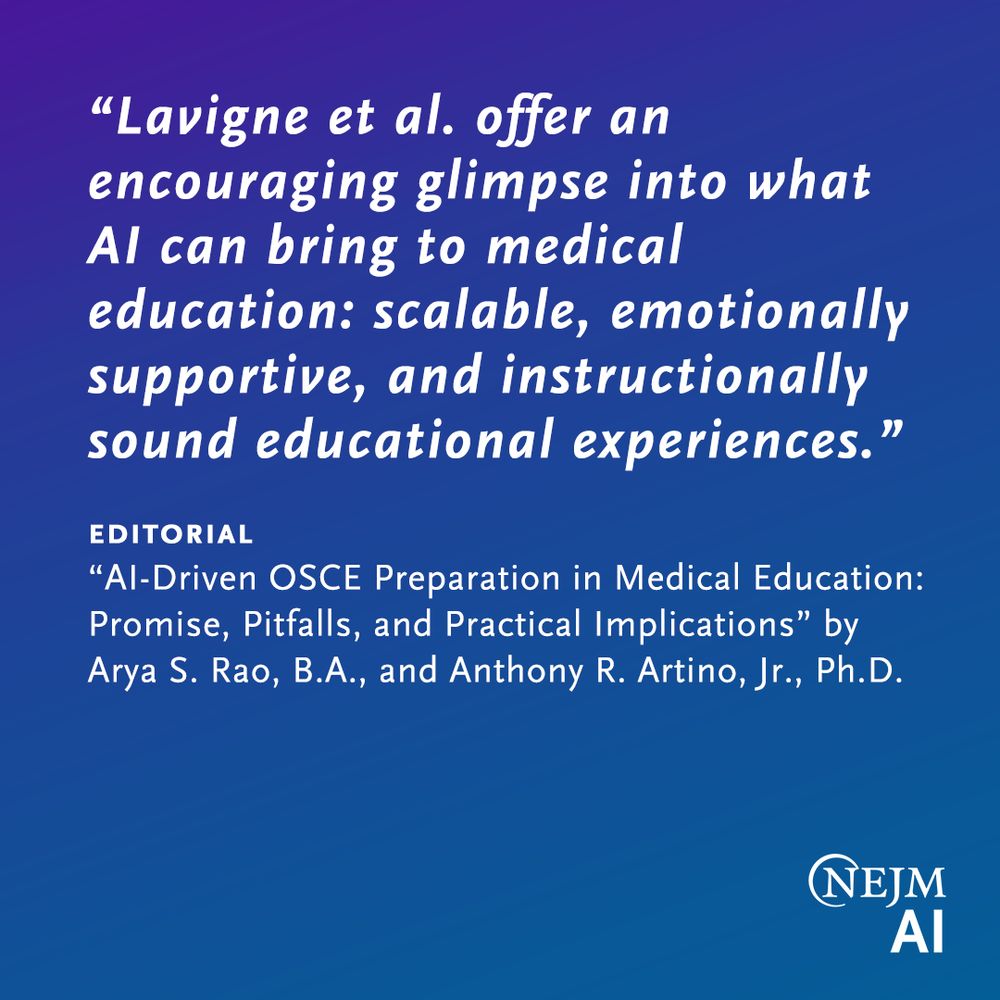
“Lavigne et al. offer an encouraging glimpse into what AI can bring to medical education: scalable, emotionally supportive, and instructionally sound educational experiences.” EDITORIAL “AI-Driven OSCE Preparation in Medical Education: Promise, Pitfalls, and Practical Implications” by Arya S. Rao, B.A., and Anthony R. Artino, Jr., Ph.D.
The authors of a new editorial examine the use of generative AI to simulate patient encounters for students preparing for the Objective Structured Clinical Examination, highlighting both its pedagogical promise and potential risks. Learn more: nejm.ai/3GyaXat
#AI #MedSky #MLSky

Figure 2. The Pipeline of Hard-Negative Mining.
SpikeNet2, a deep-learning model shown to achieve expert-level performance in detecting epileptiform discharges from EEG recordings while significantly reducing false positives, demonstrates strong generalizability across diverse datasets. Learn more: nejm.ai/4lq1Qr4
#AI #MedSky #NeuroSky
📖 Further reading:
Original Article by S. Kazemzadeh et al.: Prospective Multi-Site Validation of AI to Detect Tuberculosis and Chest X-Ray Abnormalities nejm.ai/3BiM6Vf
![“Until such evidence is available, the key donors in this space must reflect on whether continued investment in the development, procurement, and implementation of [tuberculosis computer-aided diagnosis] at scale is currently justified ...”
LETTER
“A Letter about ‘Prospective Multisite Validation of AI to Detect Tuberculosis and Chest X-Ray Abnormalities’” by Bilal A. Mateen, M.B.B.S., Ph.D., and Michael J. A. Reid, M.B.B.S., M.P.H.](https://cdn.bsky.app/img/feed_thumbnail/plain/did:plc:iwskpa7yoa6a4yq7iddpplke/bafkreiay7qelfeoca5afbkzh5kvwxkhqlynwk7lho7jfmrnlmjnoh2e4ly@jpeg)
“Until such evidence is available, the key donors in this space must reflect on whether continued investment in the development, procurement, and implementation of [tuberculosis computer-aided diagnosis] at scale is currently justified ...” LETTER “A Letter about ‘Prospective Multisite Validation of AI to Detect Tuberculosis and Chest X-Ray Abnormalities’” by Bilal A. Mateen, M.B.B.S., Ph.D., and Michael J. A. Reid, M.B.B.S., M.P.H.
A letter to the editor highlights the need for further research into the cost-effectiveness, real-world impact on patient outcomes, and broader public health value of computer-aided diagnosis tools for tuberculosis. Learn more: nejm.ai/4nRBpwv
#AI #MedSky
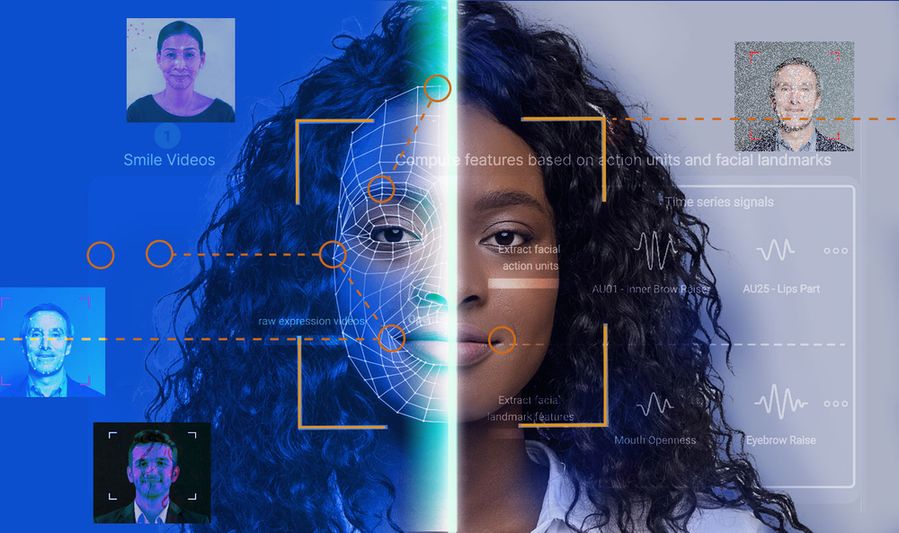
A visual representation of the AI-based screening tool for Parkinson’s disease that analyzes facial expressions in short video recordings
An AI-based screening tool for Parkinson’s disease (PD) that analyzes facial expressions demonstrated strong accuracy in identifying PD across diverse populations and settings, highlighting its potential for scalable, remote PD screening. Learn more: nejm.ai/4nk6PeD
#AI #MedSky #NeuroSky

Figure 2. The OSCE Process.
Lavigne and colleagues evaluate the AI-Standardized Clinical Examination framework, which leverages text-based simulations with virtual patients and AI-driven assessment. Read the full study results: nejm.ai/3TEiuHO
#AI #MedSky #MLSky
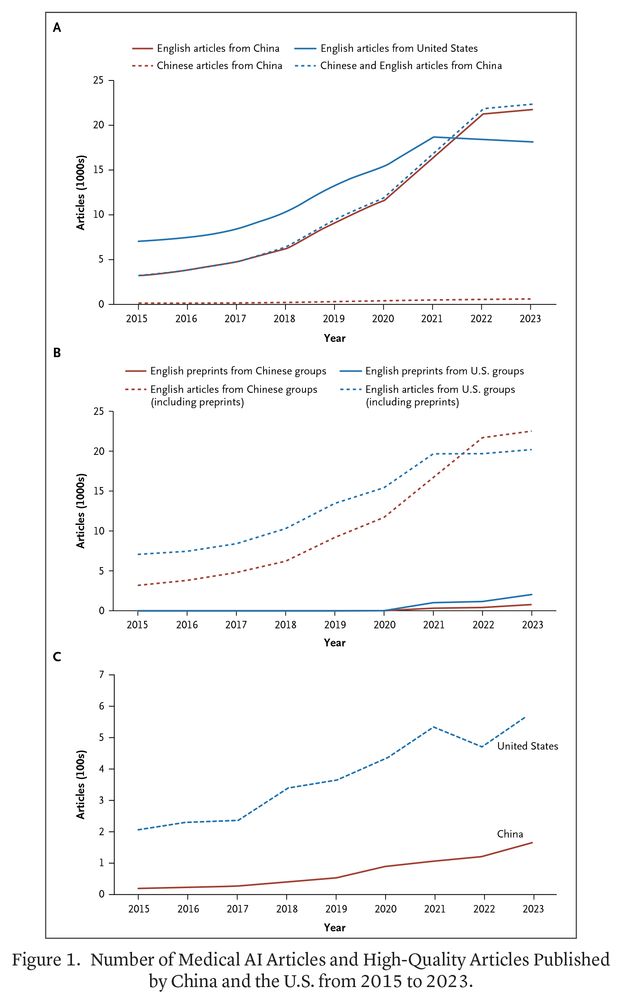
Figure 1. Number of Medical AI Articles and High-Quality Articles Published by China and the U.S. from 2015 to 2023.
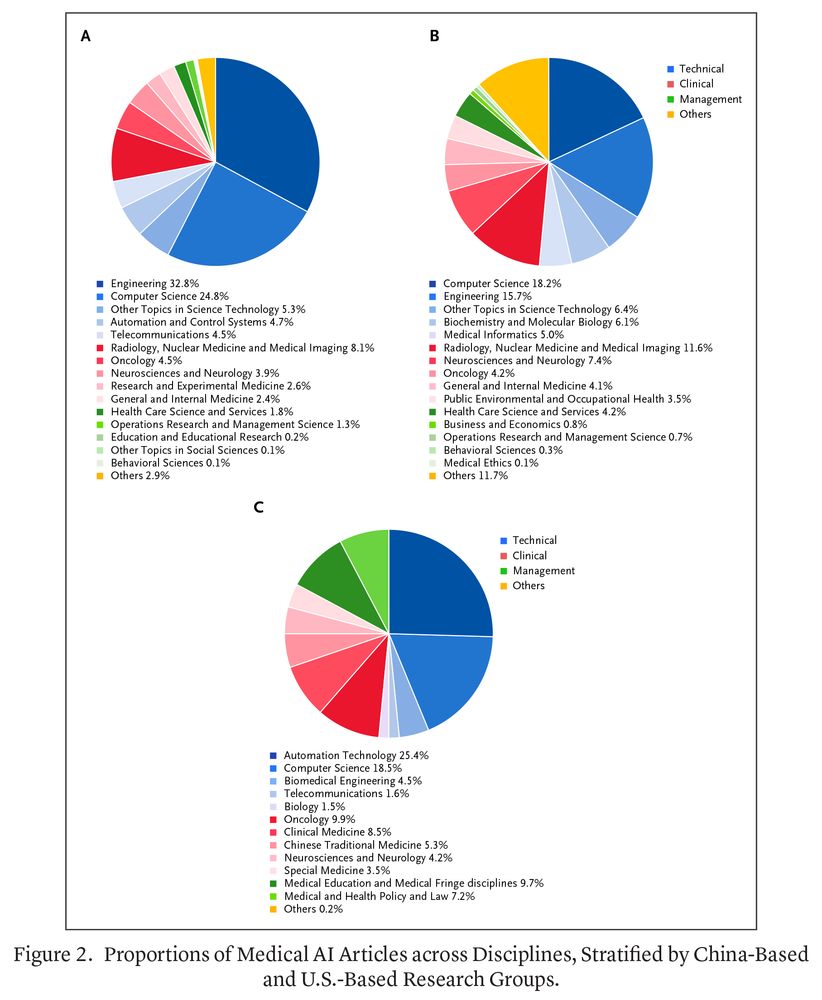
Figure 2. Proportions of Medical AI Articles across Disciplines, Stratified by China-Based and U.S.-Based Research Groups.
Perspective by Y. Qiu et al.: The Landscape of Medical AI in China nejm.ai/40kSswH
#AI #MedSky #GlobalHealth
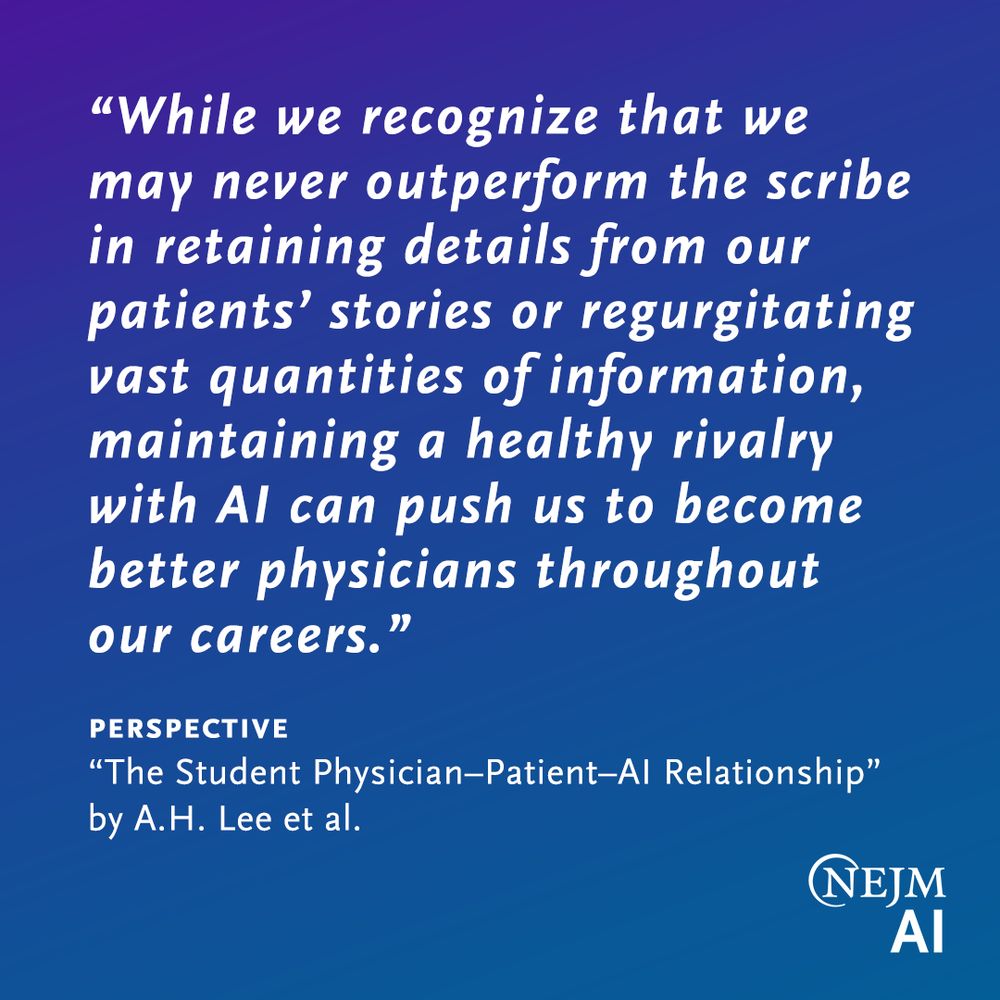
“While we recognize that we may never outperform the scribe in retaining details from our patients’ stories or regurgitating vast quantities of information, maintaining a healthy rivalry with AI can push us to become better physicians throughout our careers.” Perspective “The Student Physician–Patient–AI Relationship” by A.H. Lee et al.
For some first-year medical students, training alongside an ambient AI scribe during standardized patient interviews ultimately led to professional growth and a deeper understanding of how human skills can complement AI in clinical practice. Learn more: nejm.ai/44VgDU8
#AI #MedSky #MedEd
![Perspective
Causal ML [machine learning] holds tremendous opportunities to identify individualized treatment effects at scale and thereby close evidence gaps that have historically led to suboptimal treatment of patients with cancer. However, causal ML in precision oncology has been largely unexplored.
“Opportunities for Causal Machine Learning in Precision Oncology” by J. Weberpals et al.](https://cdn.bsky.app/img/feed_thumbnail/plain/did:plc:iwskpa7yoa6a4yq7iddpplke/bafkreiai54vjauwvhi7rbdncxtqub7ano3fginooqiwu2ahkct53mebyra@jpeg)
Perspective Causal ML [machine learning] holds tremendous opportunities to identify individualized treatment effects at scale and thereby close evidence gaps that have historically led to suboptimal treatment of patients with cancer. However, causal ML in precision oncology has been largely unexplored. “Opportunities for Causal Machine Learning in Precision Oncology” by J. Weberpals et al.
A new Perspective explores the emerging role of causal machine learning in precision oncology, highlighting its potential to improve individualized treatment decisions by estimating patient-specific treatment effects. Learn more: nejm.ai/3GOpfnl
#AI #MedSky #ML
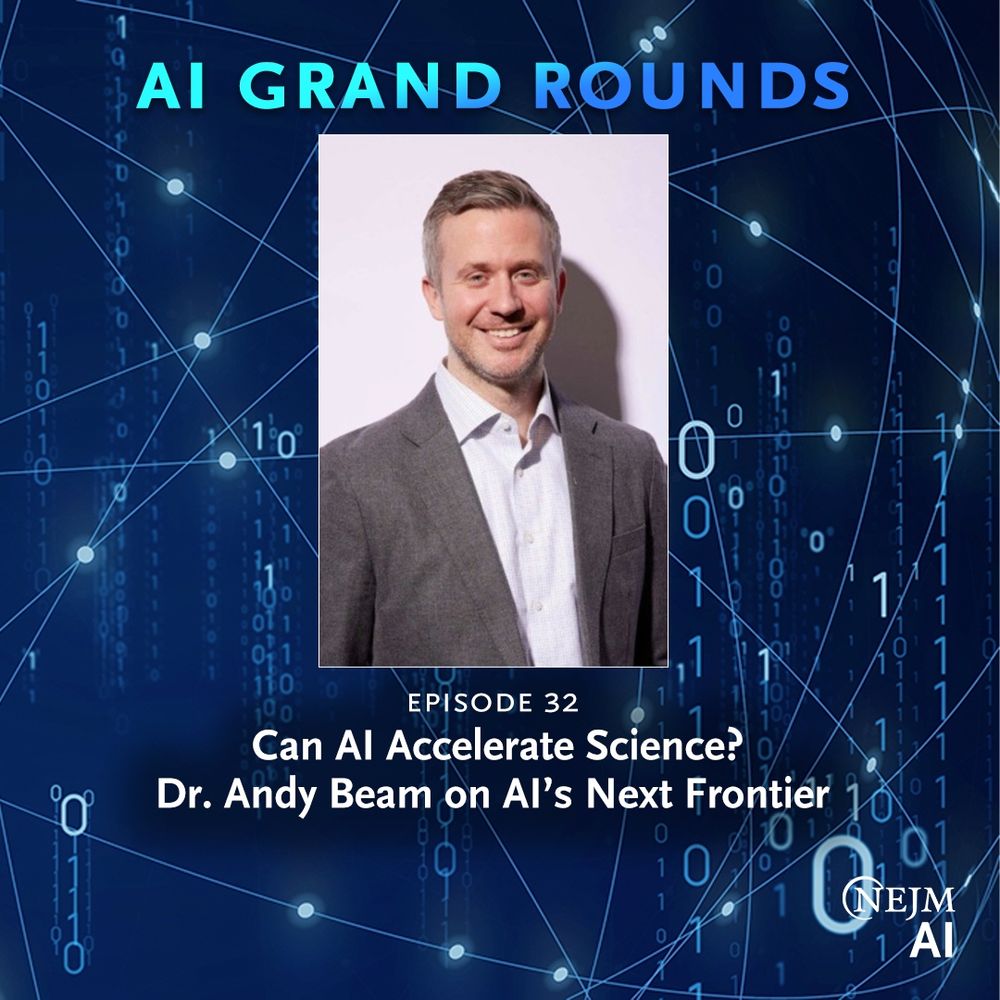
AI Grand Rounds Episode 32 Can AI Accelerate Science? Dr. Andy Beam on AI’s Next Frontier Photo of Dr. Beam
In the latest episode of the NEJM AI Grand Rounds podcast, Dr. Andy Beam (@andrewlbeam.bsky.social) reflects on how his childhood misdiagnosis, and the failure of human recall, revealed the diagnostic promise of machine learning. Full episode: nejm.ai/ep32
#MedSky #AI #MLSky